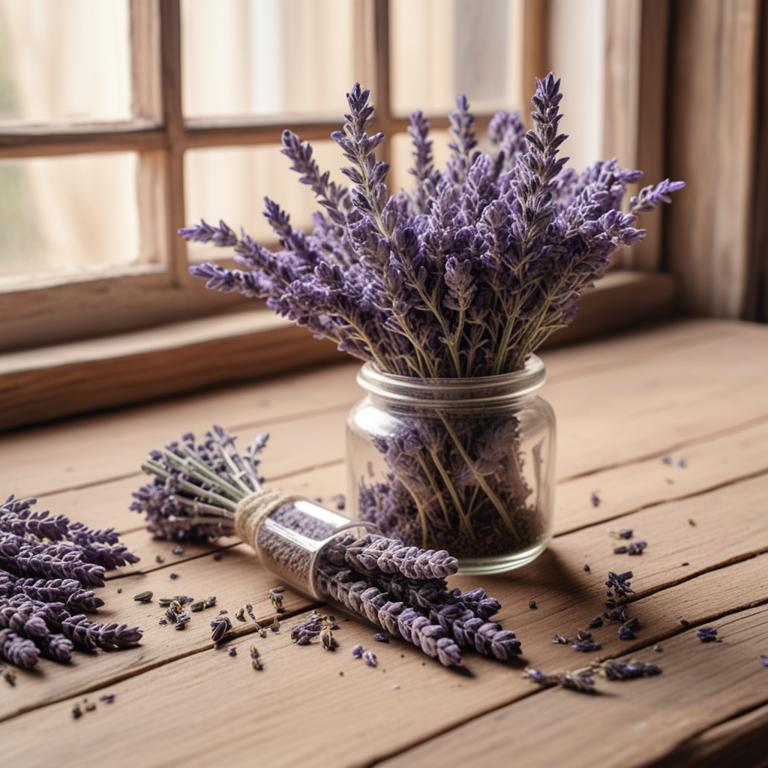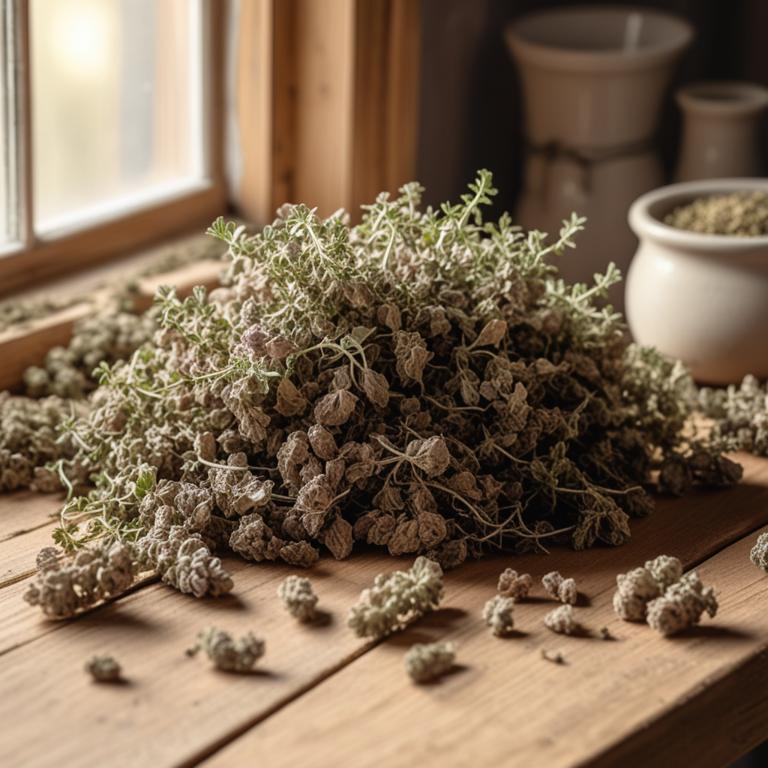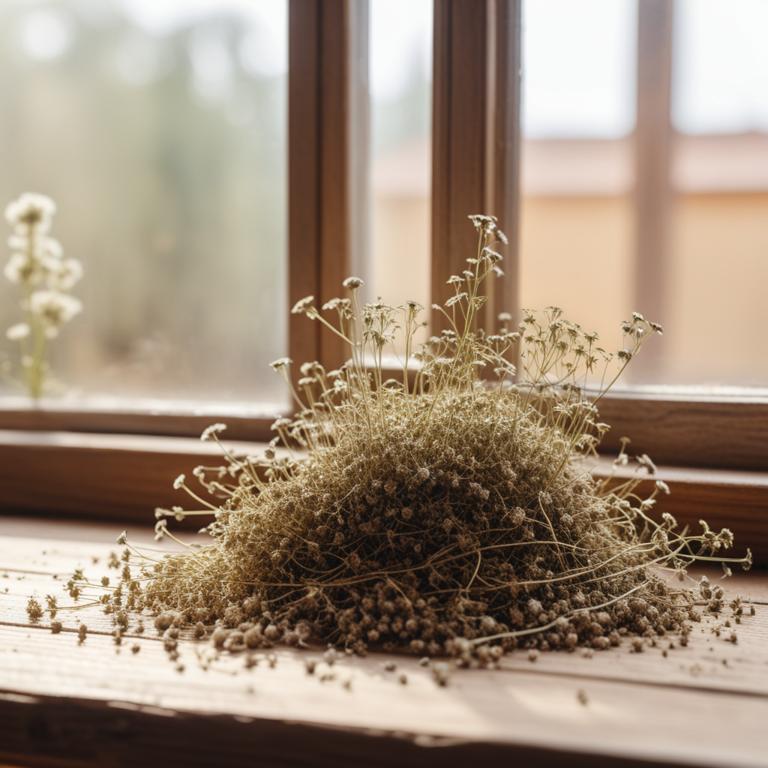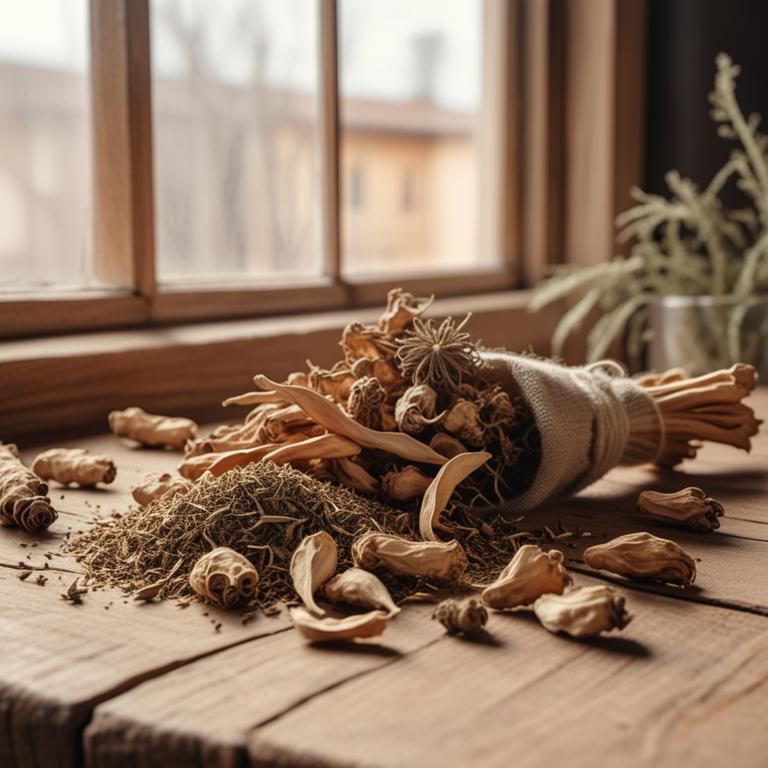Updated: Dec 1, 2024
Causes and Remedies of Burning Feet: Medicinal Herbs and Herbal Preparations
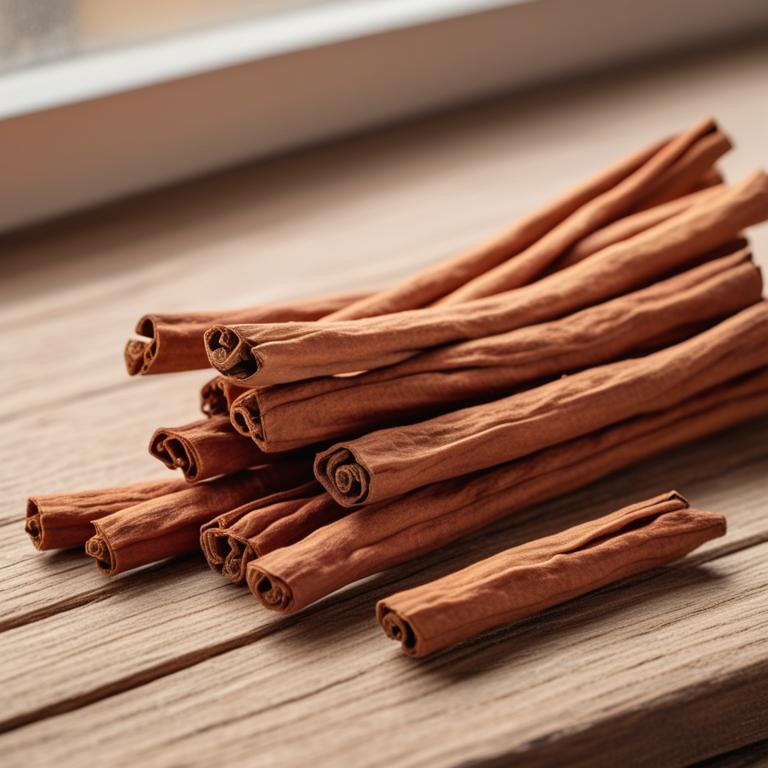
Burning feet is a common problem where the soles and toes of your feet feel hot, itchy, and uncomfortable, making it hard to walk or even stand for long periods.
It can be frustrating and affect your daily life, making it difficult to enjoy activities or even take a simple walk. Burning feet can be caused by nerve damage, diabetes, vitamin deficiencies, and even poor foot care. If you're experiencing burning feet, there are some herbal remedies that may provide relief.
Herbs like aloe vera, chamomile, and peppermint have anti-inflammatory and cooling properties that can soothe and calm your skin. You can make a tea by steeping dried herbs in hot water, or apply aloe vera gel directly to your feet to cool and calm the skin. Another option is to try a foot soak with herbs like calendula and lavender, which can help to reduce itching and discomfort.
These herbal remedies can be a natural and gentle way to find relief from burning feet.
Table of Contents
- What are the causes of burning feet sensations?
- What are the benefits of utilizing herbs to soothe burning feet?
- Which medicinal herbs are recommended for burning feet?
- What are the most widely used herbal preparations for relieving burning feet?
- What herbs should you take care to avoid if you have burning feet?
- FAQ
What are the causes of burning feet sensations?
The main causes of burning feet are several and can be quite serious.
One of the main causes is diabetes. When you have diabetes, your body either doesn't produce enough insulin or can't use it properly. This can lead to high blood sugar levels, which can damage your nerves, including the ones in your feet. As a result, you may feel a burning sensation in your feet, even when they're not exposed to heat. Another cause of burning feet is a vitamin deficiency. Vitamin B12, in particular, plays a crucial role in maintaining the health of your nerves. If you're not getting enough vitamin B12, you may experience nerve damage, which can cause burning sensations in your feet.
This is especially common in people who follow a vegan diet or have a condition that makes it hard for their body to absorb the vitamin. Nerve damage can also cause burning feet, even if you don't have diabetes. This type of damage can be caused by a variety of factors, including aging, injury, or certain medical conditions. When the nerves in your feet are damaged, they can send mixed signals to your brain, leading to feelings of burning or tingling. Finally, a foot infection can cause burning feet. Bacteria, fungi, or viruses can infect the skin on your feet, causing redness, swelling, and pain. If the infection spreads, it can lead to more severe symptoms, including a burning sensation in your feet.
This is especially common in people who have poor foot hygiene or wear tight shoes that don't allow their feet to breathe.
What are the benefits of utilizing herbs to soothe burning feet?
Using herbs for burning feet can bring a lot of relief.
One of the main benefits is that they can help to cool down the skin and reduce the discomfort. Some herbs have natural anti-inflammatory properties, which can reduce swelling and ease pain.
This can be especially helpful if the burning is caused by friction or irritation. Herbs can also help to improve circulation, which can bring more oxygen to the skin and speed up the healing process. Additionally, they can help to soothe and calm the skin, making it feel more comfortable and reducing the urge to scratch or rub the affected area.
By using herbs, you can find natural and gentle relief from burning feet, and start to feel better faster.
Which medicinal herbs are recommended for burning feet?

Herbs can provide relief for burning feet by addressing the underlying causes of discomfort.
Zingiber officinale, also known as ginger, is a natural anti-inflammatory that can help reduce swelling and ease pain in the feet. Ginger has warming properties that can increase blood flow and relaxation, making it a popular remedy for sore feet. Cymbopogon citratus, or lemongrass, has a cooling effect that can help soothe and calm irritated skin.
Its antimicrobial properties can also prevent infections and promote healing. Curcuma longa, or turmeric, contains curcumin, a compound with potent anti-inflammatory and antioxidant properties that can help reduce redness and discomfort in the feet. Aloe barbadensis, or aloe vera, is known for its soothing and moisturizing properties that can help calm irritated skin and reduce inflammation. Glycyrrhiza glabra, or licorice root, has anti-inflammatory and soothing properties that can help reduce itching and discomfort in the feet.
When used together or individually, these herbs can provide effective relief for burning feet by addressing pain, inflammation, and skin irritation.
What are the most widely used herbal preparations for relieving burning feet?

If you're experiencing burning feet, there are some herbal preparations that can help.
A decoction is a strong liquid made by boiling herbs in water. Decoctions can be made from herbs like chamomile, calendula, or licorice root, which have anti-inflammatory properties that can help soothe and calm burning feet. To make a decoction, simply boil the herbs in water for 5-10 minutes, then let it cool and soak your feet. Herbal teas are another great option for burning feet. You can make a tea by steeping herbs like peppermint, ginger, or lemongrass in hot water. Drinking these teas can help cool down your body from the inside out and ease the burning sensation. You can also soak your feet in a tea bath to get extra relief.
If you prefer a topical treatment, you can try herbal creams or ointments. These products can be applied directly to your skin to provide quick relief from burning feet. Look for creams or ointments made with herbs like aloe vera, tea tree oil, or eucalyptus, which have anti-inflammatory and cooling properties. Apply a thin layer to your feet and let it absorb. Another option is a salve, which is similar to a cream or ointment but usually thicker and more concentrated. Salves can be made with herbs like comfrey, plantain, or calendula, which can help soothe and calm burning skin. Apply a small amount to your feet and massage it in.
Salves can also be used to protect your skin from further irritation.
Additional Resources:
What herbs should you take care to avoid if you have burning feet?
If you have burning feet, it's best to avoid certain herbs that can make the problem worse.
One of these is Capsicum annuum, also known as cayenne pepper, which contains a compound called capsaicin. Capsaicin is what gives the pepper its heat, and it can irritate the skin, making burning feet even more uncomfortable. Another herb to steer clear of is Ephedra sinica, also known as Chinese ephedra. It's often used to boost energy and improve circulation, but it can also increase blood flow to the skin, which can worsen burning feet. Piper nigrum, or black pepper, is another herb that contains a compound called piperine.
While it's generally safe in small amounts, piperine can also cause skin irritation and make burning feet feel worse. Cassia auriculata, or auriculata cassia, is a plant used in traditional medicine to treat various ailments. However, it contains compounds that can increase blood flow to the skin, which can make burning feet feel more intense. Taxus baccata, or English yew, is a plant that should be avoided altogether, especially if you have burning feet. Its leaves and seeds contain a toxic compound called taxine, which can cause a range of health problems, including skin irritation and burning sensations. When using herbs, it's essential to be mindful of how they might interact with your body and make burning feet worse.
If you're experiencing discomfort, it's best to talk to a healthcare professional for advice on how to manage your symptoms.
FAQ
Are there any specific herbs that can prevent burning feet?
Some people find that applying a paste made from aloe vera can help soothe and prevent burning feet.
Another option is to try cooling herbs like peppermint or chamomile, which can help reduce heat and discomfort.
You can also try using cooling foot creams or gels that contain these herbs.
Is it safe to use herbal remedies for burning feet during pregnancy?
If you have burning feet during pregnancy, you might be tempted to try herbal remedies.
However, some herbs can be too strong or interact with other medications you're taking. It's best to be cautious and research the herbs thoroughly to ensure they're safe for you and your unborn baby.
Some herbs, like peppermint and chamomile, are generally considered safe but still need to be used carefully.
Are there any herbs that can reduce the frequency of burning feet?
Ginger is sometimes used to help reduce burning feet.
This is because it has anti-inflammatory properties that can soothe and calm the skin. Some people also find that peppermint oil can bring relief, as its cooling effect can help ease discomfort.
These remedies may help alleviate burning sensations.
Can i combine different herbal remedies for burning feet?
You can combine herbal remedies to help with burning feet, but be cautious.
Certain herbs can interact or worsen the issue. For example, combining cooling herbs like peppermint with aloe vera might be soothing, while mixing warming herbs like ginger with cayenne pepper could increase the burning sensation.
Start with small amounts to see how your skin reacts.
Related Articles

Dry Skin Relief: Understanding Causes and Herbal Preparations
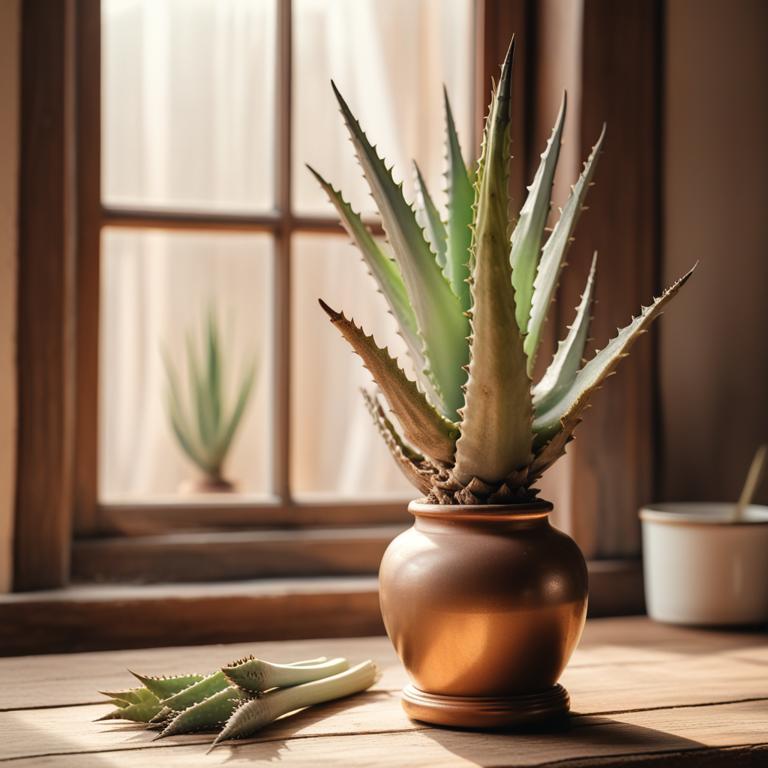
Acne Remedies: Causes, Medicinal Herbs, and Natural Herbal Preparations
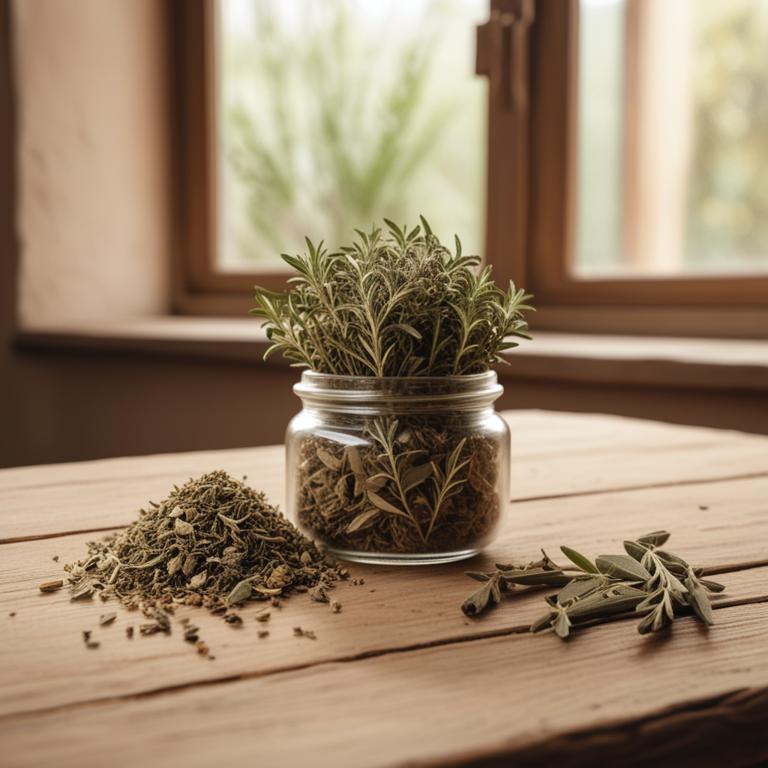
Grey Hair Causes, Treatment, and Medicinal Herbal Preparations
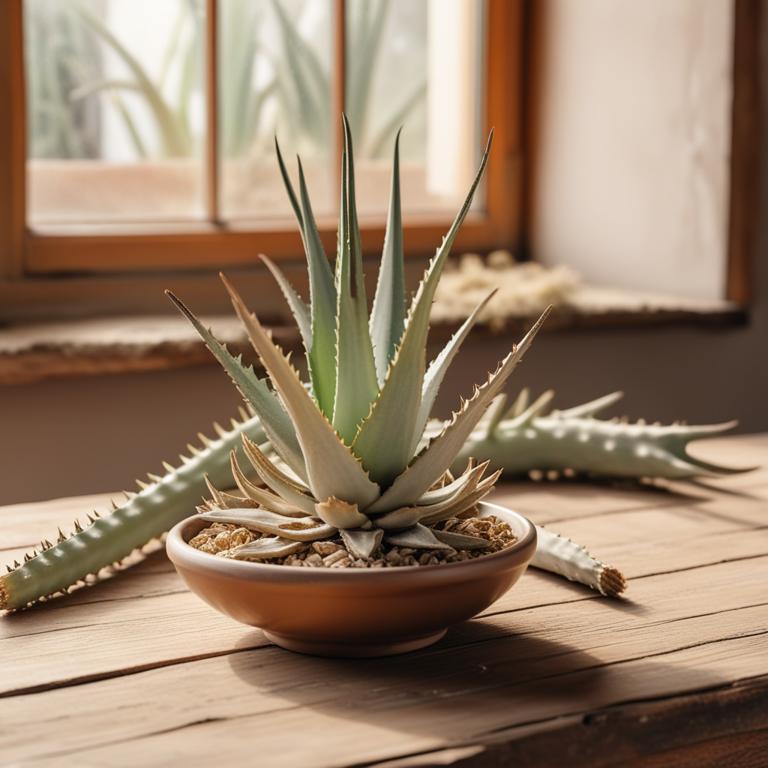
Natural Treatments for Open Wounds: Causes, Medicinal Herbs, and Preparations
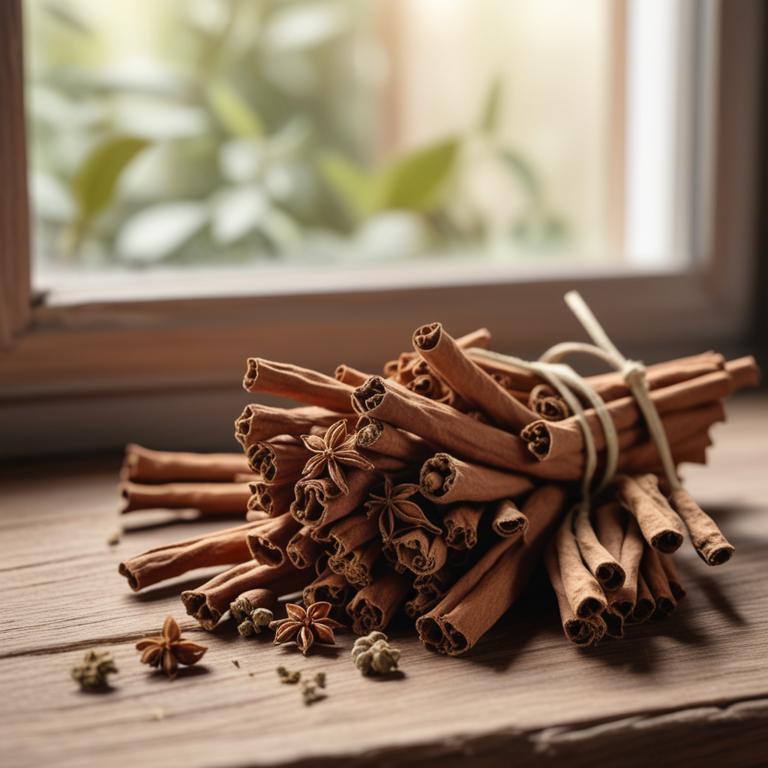
Oral Thrush: Understanding the Causes, Medicinal Herbs, and Herbal Solutions for Relief
